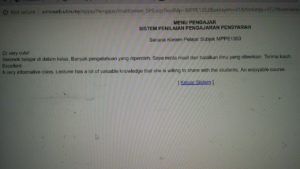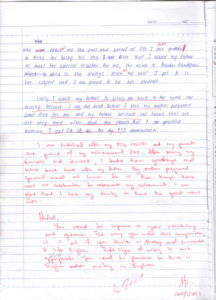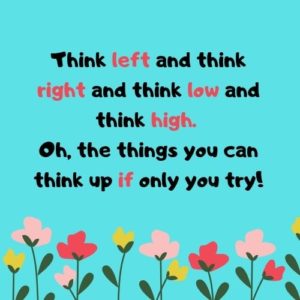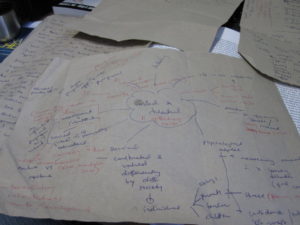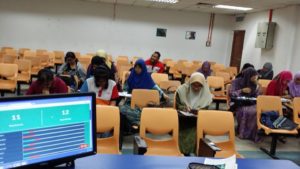Calvin: “Here’s the latest poll on your performance as dad. Your approval rating is pretty low, I’m afraid.”
Dad: “That’s because there’s not necessarily any connection between what’s good and what’s popular. I do what’s right, not what gets approval.”
Calvin: “You’ll never keep the job with that attitude.”
Dad: “If someone else offers to do it, let me know.”
–Calvin and Hobbes, Bill Watterson, February 13, 1994
As an instructor, I find myself always in a dilemma: to teach my students the right thing right or to teach my students what are considered as right depending on situation. Right will be right no matter the situation is. That should be the case. But the reality is not like that. We deal with lots of “grey” matter.
But when it comes to teaching, students’ rating do not related to how effective one’s teaching. So, one of my seniors once said “Dijah, jangan fikir sangat kalau dapat komen teruk dari pelajar ni. Diorang ni kalau tak suka kita, dia komen la macam-macam. Cuba Dijah belanja dia makan-makan, ajak lepak sama-sama, diorang tak kasi la komen teruk macam ni [Translated: Dijah, don’t think too much about it if you got such comments from students. If they dislike you, they would give bad comments. If you treat them, hang out together, they won’t give such comments”]”. That becomes my stance until now about UTM ePPP.
A study has shown that even though those teachers/instructors who got the highest rating are perceived as the one who contribute the most to learning, but those who got lower rating are the one who are most effective in their teaching. It is ironic, isn’t it? Which is which? Do you want those so really good in teaching or those who perceived as “influencer” in one’s learning experience?
Of course, it would be better if we can have teachers/instructors who are excellent in teaching and at the same time contribute the most to learning. It is not impossible but it takes time and lots of efforts for the teachers’ parts to consciously improve their teaching (this could be time consuming). If teachers are bogged down with so many roles and responsibilities, teaching would lose its importance. It can be seen in academia where teaching is not a core business of some instructors who focus more on research and publication, rather than teaching (unless these people focus on doing Scholarship of Teaching and Learning or SOTL).
Well, at the end of the day, it is all back to the question of why do we choose this profession i.e. teaching. One thing for sure, teaching won’t make us billionaires but many teachers have played their parts to nurture billionaires. Indeed.
